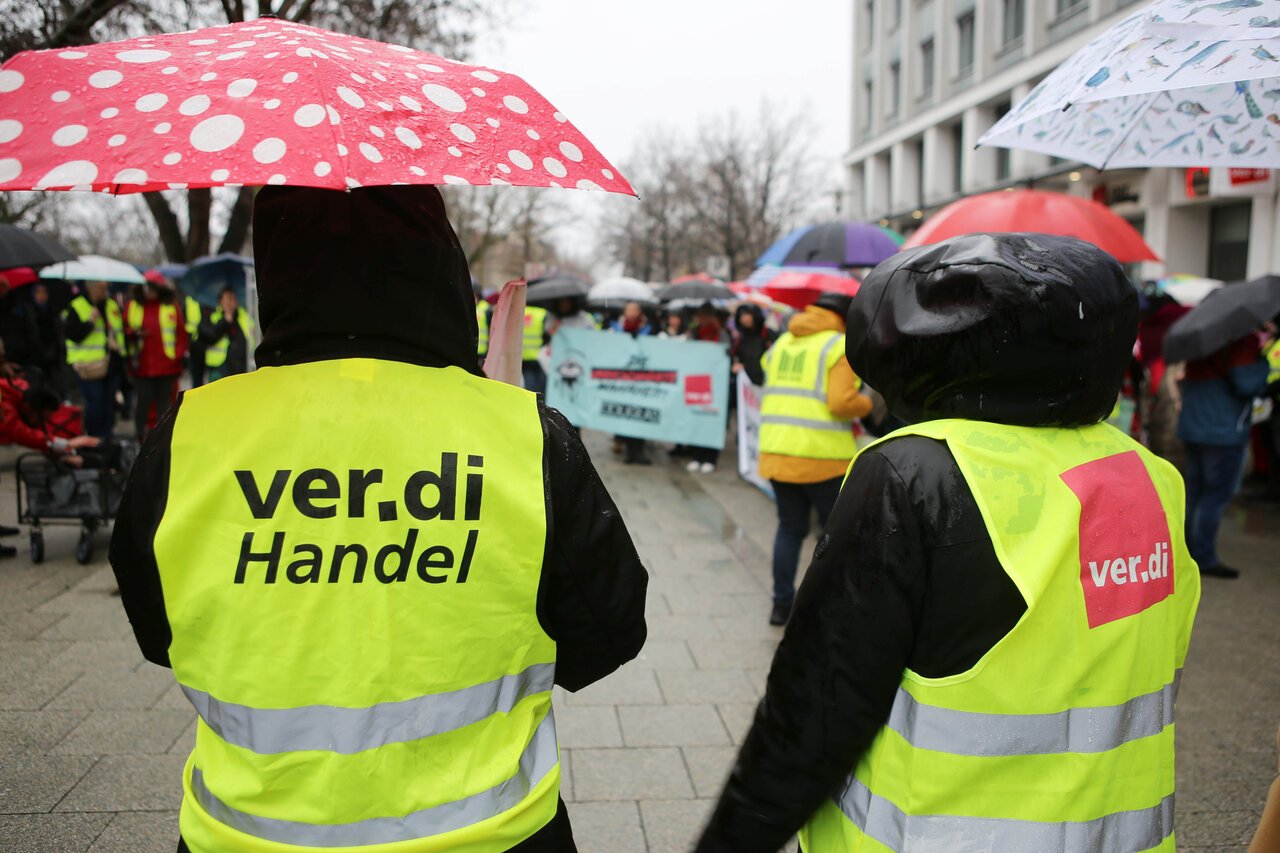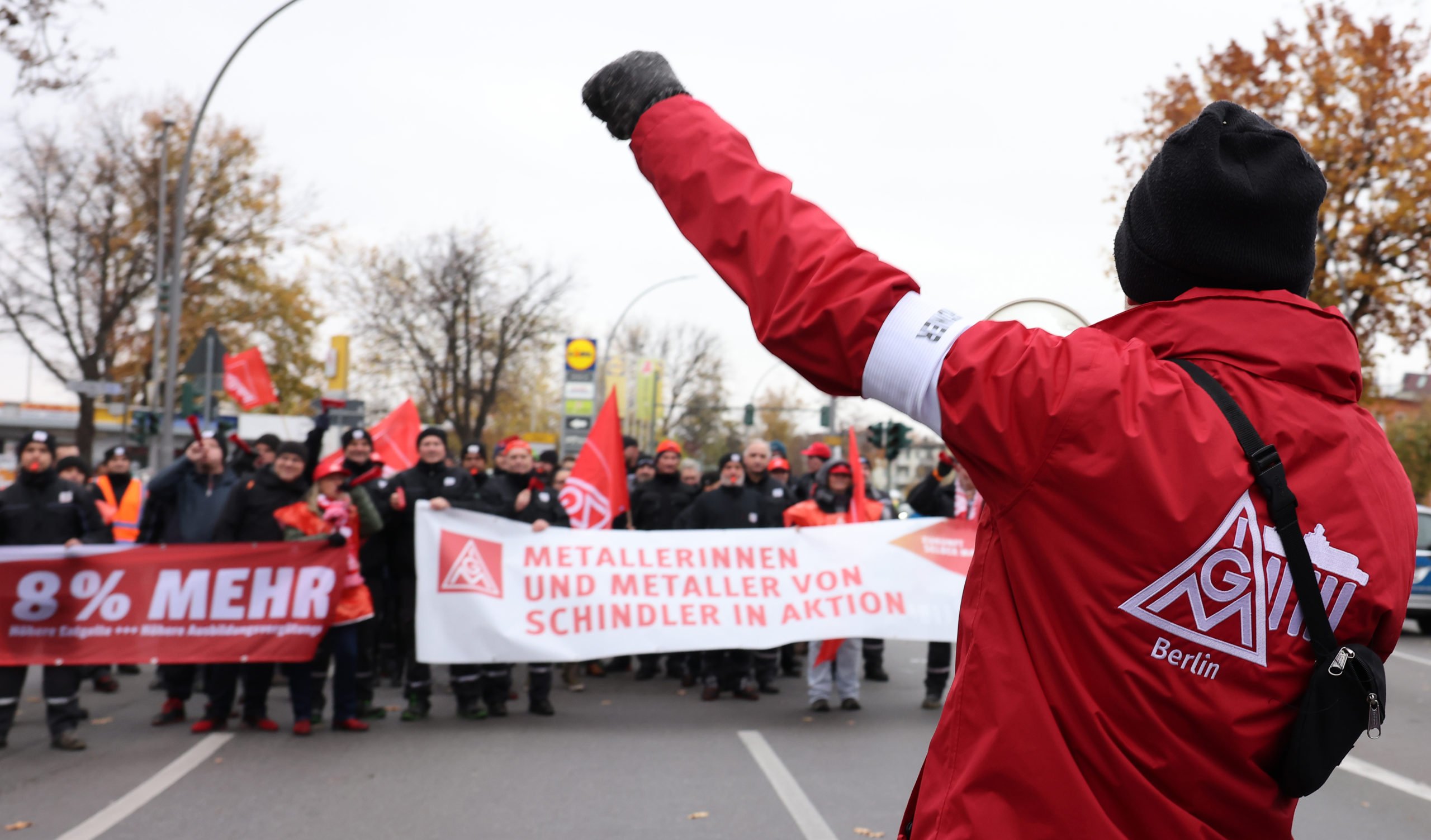Last year saw difficult collective bargaining rounds accompanied by several strikes. Some of them will continue in 2024, such as in the railway and retail sectors.
Train strikes lasting up to five days
An ongoing row between the Train Drivers' Union (GDL) and Deutsche Bahn will ramp up this month.
Passengers were warned last month that passengers will have to prepare for strikes from January 8th.
And they will be longer than previous strikes. So far, train travellers in Germany have seen ‘warning strikes’ where workers walk off the job for around 24 hours at a time.
But almost all of the union's 10,000 members - 97 percent - voted to carry out so-called unlimited strikes.
While a warning strike usually sees workers specify how long they’ll be off the job for, unlimited strikes are indefinite. This means the union might not say when workers will start up again when they serve strike notice.
Union leader Claus Weselsky has previously said the strikes will not last weeks in this case, but they could stretch up to five days in a row.
This would cause massive disruption to travellers using long-distance and regional trains, S-Bahn trains and some private operators.
In order to avert this happening, Deutsche Bahn would have to declare its willingness to negotiate a 35-hour week instead of the current 38-hour week. The signal for this has not yet been heard publicly, at least not yet.
READ ALSO: What January rail strikes might mean for customers
Verdi calls for strike action in the retail sector
The talks in the retail sector between the trade union Verdi and the employers' associations, which have been ongoing since last spring, were not concluded at the end of the year. Meanwhile, an attempt to reach an initial agreement for the retail sector in Hamburg at the end of December was unsuccessful.
Strike action by retail workers has been taking place, including in Lower Saxony on December 23rd and Saarland shortly after Christmas.
Union Verdi is demanding 'poverty-proof' incomes to help support workers. There are no dates for a new meeting at the negotiating table and Verdi has said strikes will continue this month.

Doctor's surgeries
Many doctors practices have been closing in recent months as medical associations demand more financial support from the government.
In the latest action, many clinics closed between Wednesday and Friday inbetween Christmas and New Year.
Thousands of doctors have been taking part in the campaign, which is meant to demonstrate how overloaded the practices are ahead of a planned crisis summit between the country’s medical association and Health Minister Karl Lauterbach this month.
According to German media reports, the action could extend to specialist doctors. From January 9th, some specialist doctors could close, making it harder to get to an appointment.
While many individual practices have been taking part, doing so is voluntary – with each doctor’s office deciding for itself whether to participate.
READ ALSO: Why thousands of doctor surgeries are closed in Germany
Start of collective bargaining rounds
Whether it's workers in bakeries, bricklayers and foremen, security staff or employees in printing plants: a new round of collective bargaining is on the way.
The collective bargaining archive of the trade union-affiliated Hans Böckler Foundation estimates that around 12 million employees are affected and represented by a DGB trade union.
Among other major sectors, negotiations for the printing industry are scheduled for February and in the construction industry for March. The economic crisis is making itself felt in both sectors.
The talks are likely to be difficult for the trade unions as companies face rising costs.
READ ALSO: Should foreign workers join a union in Germany?
'Warning strikes' are often used as a negotiating tactic to demonstrate leverage and how integral the service is to life in Germany - so that could come into play here.
The collective bargaining round for almost 590,000 employees in the chemical industry will start in June. The IG BCE union favours partnership and rarely resorts to strikes as a means of exerting pressure so there many not be any action here.
There are also turbulent times ahead for Lufthansa, its subsidiaries and passengers. The unions are negotiating for pilots, flight attendants and ground staff.
Later in the year: IG Metall union for higher incomes and a four-day week
The collective bargaining round in the largest industrial sector is unlikely to be free of conflict. New collective agreements in the metal and electrical industry, which employs around 3.6 million people nationwide, are due in autumn.

IG Metall wants to decide on its demands as early as June. It is not yet clear whether the union wants to achieve shorter working hours with full wage compensation, as it did last year in the steel industry.
This is being discussed under the heading "four-day week", but has already been heavily criticised by employers.
The industry is export-driven, especially in Bavaria, and things are not exactly running smoothly due to the turbulent economy.
However, companies have also been feeling the shortage of skilled labour for a long time. IG Metall will certainly use this to push through higher wages in the collective bargaining round. The fact that it has already taken its members out of the factory halls and onto the streets to do so is well known to the bargaining partners.
2025: Collective bargaining rounds for the public sector and the postal service
At the end of 2024, preparations will get underway for two rounds of collective bargaining that will start in 2025: the collective agreements for both the federal and local public services and the postal service will expire.
Strikes are not yet permitted this year - but if they come in new year in 2025, it will affect nurseries, waste collection, local public transport and the delivery of letters and parcels.

Comments